
Issue: 69 / May 2020
Foreword
Welcome to the May 2020 issue of PSC News.
As we were preparing this issue, many of our staff are working from home and we continue to help our clients deliver reliable energy in a world that is facing one of the most significant global events in most people’s lifetime. COVID-19 has certainly changed the way we work but has not altered the critical work we and our clients perform – producing and delivering reliable, safe, and increasingly sustainable electricity.
PSC is pleased to work in the evolving area of renewable energy, and we cover several topics in this issue from energy storage solutions, protection engineering for the modern grid and the benefits of offshore wind energy.
You can also read the first part of our three-part series on IIoT and the keys to actualizing the decentralized energy revolution. We provide an overview of Australia’s unique energy regulatory context. And, as we welcome several new staff to the PSC team, we look at our response to living our values during these challenging times. Finally, we touch on an online seminar delivered by our CEO, Alex Boyd, hosted by Washington State University’s Energy Systems Innovation Center (ESIC) on “Balancing Industry Mission with Innovation and Change.”
I hope you enjoy the update, and as always, we welcome your comments and suggestions.
Tim Ritchie Chief Revenue Officer

Two of PSC’s core values are to invest in the future and foster bright ideas. One of the ways we embody these values is by interacting with students interested in joining our industry. That’s why I was delighted to accept an invitation recently to address a group from Washington State University.
Before the COVID-19 confinement in March, I gave the keynote address at the 15th International Conference on Developments in Power System Protection in Liverpool. Since then, our conference participation – and basically everything else we’ve been working on – has become 100 percent virtual.
So, earlier this week, I put on my best slippers and presented in an online seminar hosted by Washington State University’s Energy Systems Innovation Center (ESIC). I spoke with a group of mostly WSU Ph.D. students and a few other folks from the electric utility industry and academia. Click on “Read More” below for the full article and some of the key points of my presentation titled, “Balancing Industry Mission with Innovation and Change.”
Author: Alex Boyd
Which storage solution is right for you?
Naturally, it depends. As storage technology continues to evolve, energy suppliers and consumers alike are presented with increasing options for deployment. Latest and greatest solutions that take advantage of technology breakthroughs are exciting, but determining when, and in what kind of technology to invest can be a challenge.
For instance, earlier this year, scientists at the University of Southern California developed a new redox flow battery. The benefits are that this battery is based on low-cost and readily available materials and can recharge hundreds of times with virtually no loss of power. Sounds impressive, but does that mean it’s the right storage solution for every case? Again, it depends.
Author: Matt Robinson

Protection Engineering for the Modern Grid
As countries continue down the path toward low or no-carbon energy supplies, the role of protection engineering is adapting to balance integrating these new resources while maintaining reliability. PSC offers its Protection Engineering Services to help its clients protect their mission-critical assets and personnel while maximizing grid reliability and operational life.
According to the International Energy Agency, global renewable capacity is expected to grow by 12 percent this year. The agency also predicts that offshore wind capacity will triple by 2024. This trend is driven by the transition toward 100 percent clean electricity in many countries, cities, and utilities around the world. As the modern grid adapts to decarbonization – with elevated levels of renewable penetration, a diverse range of generation types, and the wider distribution of generation sources – new challenges and uncertainties have been introduced into the power system. Renewable generation, with its higher levels of intermittency and lower fault level contribution, offers distinctive characteristics to our traditional view of thermal generation sources.
Author: Richard Adams
PSC adds value to expanding offshore wind sector
Offshore wind generation provides a significant contribution to the global challenge to reduce carbon emissions, benefitting from rapid technology improvements and capital cost reductions over the last ten years. Recognizing this offshore wind energy potential, PSC is actively engaged in global offshore wind projects.
Offshore wind growth isn’t slowing anytime soon
The global offshore wind market grew nearly 30 percent per year between 2010 and 2019 with Europe leading the way, most notably the United Kingdom, Germany, and Denmark. The drive to develop offshore wind is now geographically diverse with schemes being developed in China, Vietnam, Finland, Japan, South Korea, the US, Ireland, Taiwan, Spain, Norway, and France.
Author: Nick Randles
Energy IIoT and the keys to actualizing the decentralized energy revolution – Part 1 of 3
Innovations in power generation, storage, and transmission technologies are forcing a shift away from centralized power generation towards a distributed, decentralized model. Utility operations are presented with new challenges related to security and controls; how they respond will shape the future of the decentralized energy landscape. This 3-part series will investigate the potential applications of distributed systems, as well as the role of interoperability in actualizing the decentralized energy revolution.
Growing penetration of renewable devices and inverter-based controls are driving a need for intelligence at the grid edge. Active management will be required to fully leverage the distributed power technology of the future, with increased telemetry data and low latency coordination between devices, enabling bi-directional power flow.
Author: John Camilleri
Australia’s unique energy regulatory context
Australia has a uniquely ‘long, skinny’ energy network with a high penetration of renewable generation. Networks in comparable countries are very dense and interconnected, giving them a high level of redundancy that protects against outages. However, Australia’s geography and dispersed population centers means that the same levels of interconnection and redundancy are not possible.
This presents several challenges for the market operator (AEMO) in ensuring security and stability of supply on the world’s largest (by geography) energy network. For this reason, renewable generation connected to of the National Electricity Market (NEM) must meet a much higher compliance bar than is necessary for other countries.
Author: Peter Brown
Living our values during challenging times
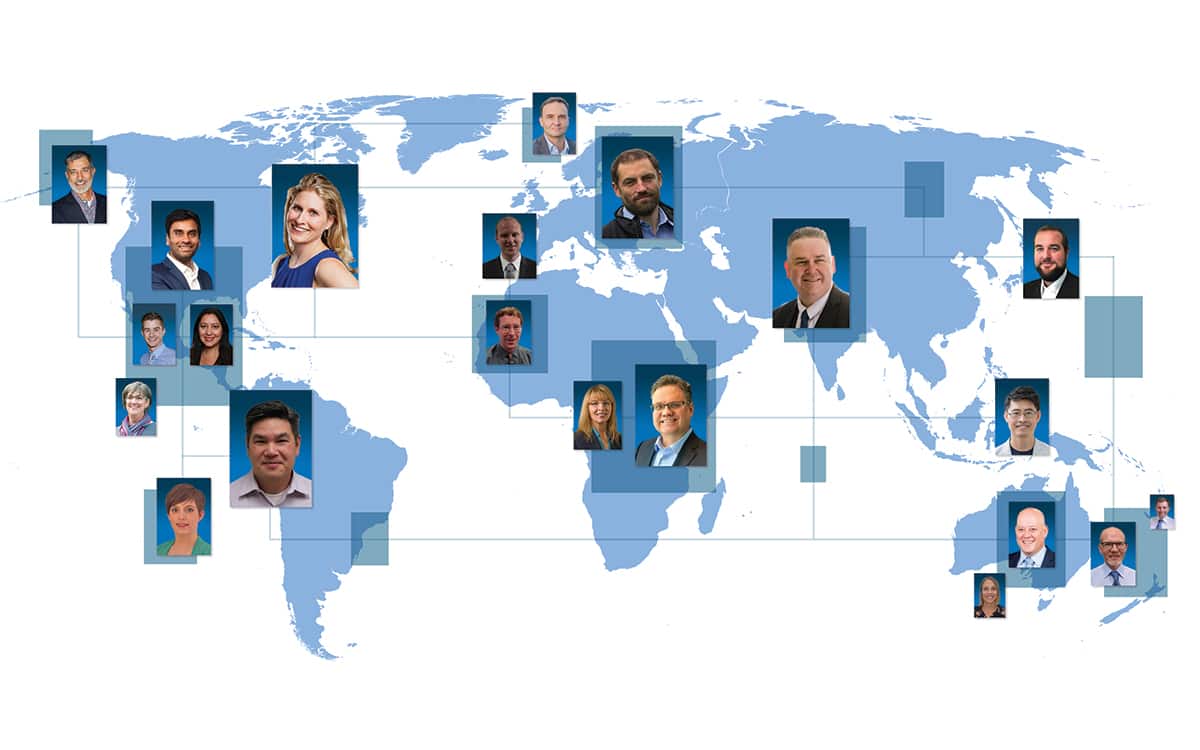
At PSC we’ve always seen ourselves as serving communities – helping our clients power the world and keep the lights on around the globe. This sense of service and of making a positive contribution has suddenly developed a terrible new urgency as we – along with you our clients – face a vastly different reality. The services we provide together with you have never been more critical to the people who depend on us.
We’re all together in this, and together is how we’ll make it through. With that in mind, we thought we’d give you an insight into our approach to navigating these uncertain times and our new work from home model. We also thought we’d share some of the more lighthearted moments that have helped us all bond more tightly together.
Author: Chris Goebel
PSC Welcomes New Staff
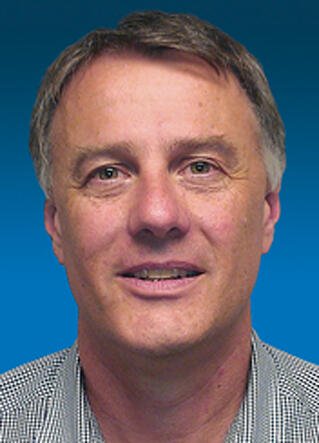
Mark Prentice – PSC North America
Please join us in (re)welcoming Mark Prentice to PSC North America! We are so happy to have Mark back after a start up adventure where he was the Director of R&D and added some cyber security experience to his illustrious list of skills. Mark was the R&D Manager for EMS Data Modeling Tools at Alstom, now GE. He was also the R&D Manager for the Data Acquisition team (aka. SCADA) at Alstom, now GE. Mark will be working out of his Mount Vernon location, 60 miles north of the Kirkland office. He is an accomplished individual contributor, project manager, account manager and people manager. His strengths lie in strategic advisory and applying his 35 years of experience in the electric utility industry to lead our clients safely through the ongoing transformation.
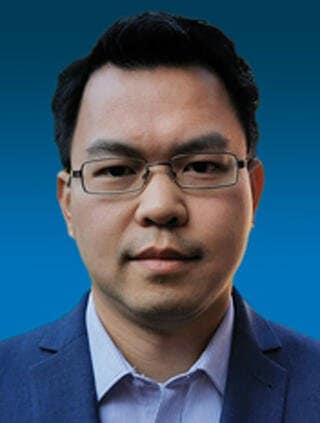
Jinsheng Peng – PSC Europe
Under some slightly different circumstances during the last week of March, Jinsheng Peng remotely joined the PSC UK team. Jinsheng will be working from home in Wokingham and will be associated with the Warwick office. Jinsheng joins the Electrical Engineering business unit and will initially be working on some insulation coordination studies for our Australian colleagues. Jinsheng has more than six years’ experience with Mott MacDonald as a power systems engineer and prior to that completed a PhD at Manchester University focusing on transformer energization transients. Jinsheng is also an active member of the CIGRE C4.46 working group looking to better understand methods for investigating temporary overvoltages in the power system. Jinsheng and his family have recently moved from Glasgow to Wokingham and are settling into their new home in England. In his spare time Jinsheng enjoys reading, playing football and badminton, and he also enjoys being a taxi driver for his two kids. Please welcome Jinsheng to the PSC team.
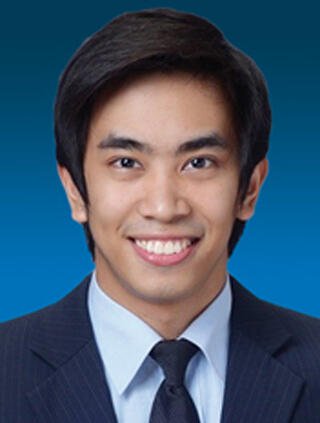
Justine Yap – PSC Australia
PSC welcomes Justine Yap who is a junior engineer with two years’ experience primarily as a spot market specialist with the Independent Electricity Market Operator of the Philippines (IEMOP). In this role, he performed market analysis and simulations, user accepted IT system changes and provided reporting to management. Justine has a Bachelor of Science in Electrical Engineering and joins the Market Systems team in Western Australia as a Market Systems Specialist.
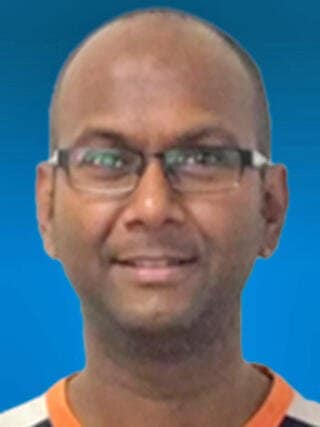
Vishan Veerahoo – PSC Australia
PSC welcomes Vishan Veerahoo to the Market Systems Team in Western Australia. Vishan has over 15 years’ experience in software development, analysis and implementation for business process outsourcing, government and energy sectors. He has worked across the full life cycle for applications from the preparation of technical specifications and implementation to continuous improvement to ensure stability and improved performance. Vishan’s first assignment will be as a Senior Software developer on the RCM Pricing project, implementing a large scale Market Rule change for AEMO.
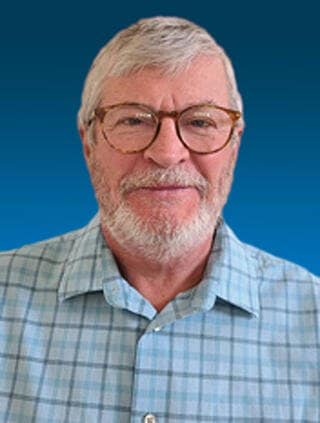
Bill Sweetman – PSC North America
We are pleased to welcome Bill Sweetman to PSC North America. Bill Sweetman is a senior Power System engineer with over 30 years’ experience working on the implementation of Energy Management and Market Management Systems. He has been involved with some of the largest RTOs and ISOs in the US – such as PJM, MISO, ERCOT, ISO NE – and is familiar with both the utility and vendor side of operations and software development for advanced applications. Bill has specialist knowledge of the Transmission Network Application suite, various Operator Training Simulators and has specific experience with complex data modeling challenges in a CIM environment – using various vendors’ products. Originally a Siemens staffer, Bill has also spent time with both OSI and Oracle Utilities. In recent weeks Bill has relocated from outstate Minnesota to the western suburbs of Minneapolis. (Guess he’s had enough of the frozen, wind-swept tundra). A warm welcome to Bill!

Hassan Mahmoud – PSC North America
Hassan Mahmoud joined PSC on April 6th as a consultant. He is currently living in Chattanooga, TN with his family. Hassan graduated from the University of Khartoum in Sudan with Honors (BSEE). He worked three years as an Operator with the National Load Dispatch Centre in Sudan as well as three years as an EMS Engineer. Hassan will support our clients in the North America Operational Technologies Group. He has experience on Siemens and NARI systems, as well as, power system analysis in support of his operational roles. Hassan enjoys spending time reading novels and jogging. During our unique pandemic working environment, Hassan continues to familiarize himself with the GE product line and taking some courses to support his future assignments. Hassan is easy going and excited to learn. Welcome aboard Hassan!